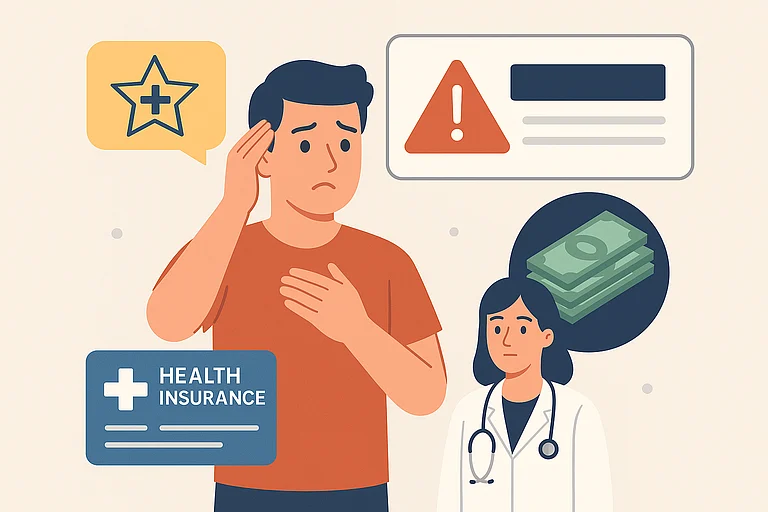The issue of cashless care between hospitals and insurance companies has flared up again, putting policyholders in a vulnerable spot when it comes to claim services. This week, the General Insurance Council (GI Council) urged the Association of Healthcare Providers (India) (AHPI) to withdraw its threat of suspending cashless services for Star Health Insurance policyholders.
Cashless Care at Risk: GI Council Pushes Back, What Policyholders Should Know If Services Stop
This is not the first such standoff. In recent months, AHPI has issued similar warnings against Bajaj Allianz, Care Health, and Niva Bupa. Policyholders and their families get caught up between these issues, and end up losing the convenience of cashless care. Here’s a recourse when stuck with no cashless service at hospitals at the time of treatment
AHPI, which represents more than 15,000 hospitals, has warned that unless its concerns are addressed by September 22, 2025, its member hospitals will stop offering cashless facilities to Star Health customers. For thousands of families, that could mean having to pay hefty sums upfront at the time of hospitalisation, defeating the very purpose of buying health insurance.
GI Council Criticises AHPI
The GI Council, which represents all non-life insurers, has pushed back strongly. It said such arbitrary action would “prejudice the interests of policyholders” and undermine trust in the health insurance system. The council has insisted that while tariff negotiations between hospitals and insurers are inevitable, they should never be allowed to disrupt patient care.
This is not the first such stand-off between network hospitals and health insurance companies In recent months, AHPI has issued similar warnings against Bajaj Allianz, Care Health, and Niva Bupa. The association has accused insurers, in the present case - Star Health, of underpaying hospitals, making unexplained deductions on approved claims, and demanding lower tariffs that hurt patient care.
Insurers, on the other hand, say many hospitals inflate bills and push up treatment costs without justification.
Policyholders and their families get caught up between these issues, and end up losing the convenience of cashless care.
According to the Council of Insurance Ombudsman’s annual report, Star Health already has the highest number of complaints filed against it, with more than 10,000 cases in FY 2023-24 linked to rejected claims.
What Can Policyholders Do If Cashless Facility Stops?
While the industry tussle plays out, patients need to know what their options are if cashless services suddenly get suspended.
Recent experiences offer a cautionary reminder. When Niva Bupa briefly suspended cashless approvals at Max hospitals, patients admitted during that period had no choice but to pay upfront and later apply for reimbursement.
Experts point out that a denial at the hospital desk doesn’t necessarily mean the claim itself is lost. Sunny Bhatia, senior vice president, retail, at Turtlemint told Outlook Money that the first step in such situations is to make the advance payment so treatment is not delayed. The insured can then either resubmit the documents for cashless approval or switch for reimbursement.
The reimbursement process, however, requires careful handling of paperwork. Patients should preserve all diagnostic reports, prescriptions, discharge summary, and every original bill. Insurers usually allow 30 days from the date of discharge to file a reimbursement claim.
If you face troubles getting your claim approved, additional clarifications from doctors or test results can also be submitted if the claim is denied.
The key takeaway for policyholders is that while a suspension of cashless care can cause panic at the hospital counter, it doesn’t mean the policyholder loses coverage. The financial protection remains, but the mode of settlement shifts from cashless to reimbursement, with the burden of initial payment falling on the patient’s family.
Why This Matters
For most families, the biggest comfort of health insurance is knowing that money will not come in the way of timely treatment. The cashless facility has become the backbone of that trust. If disputes between insurers and hospitals spill over into disruption, it risks weakening public faith in health insurance altogether.


